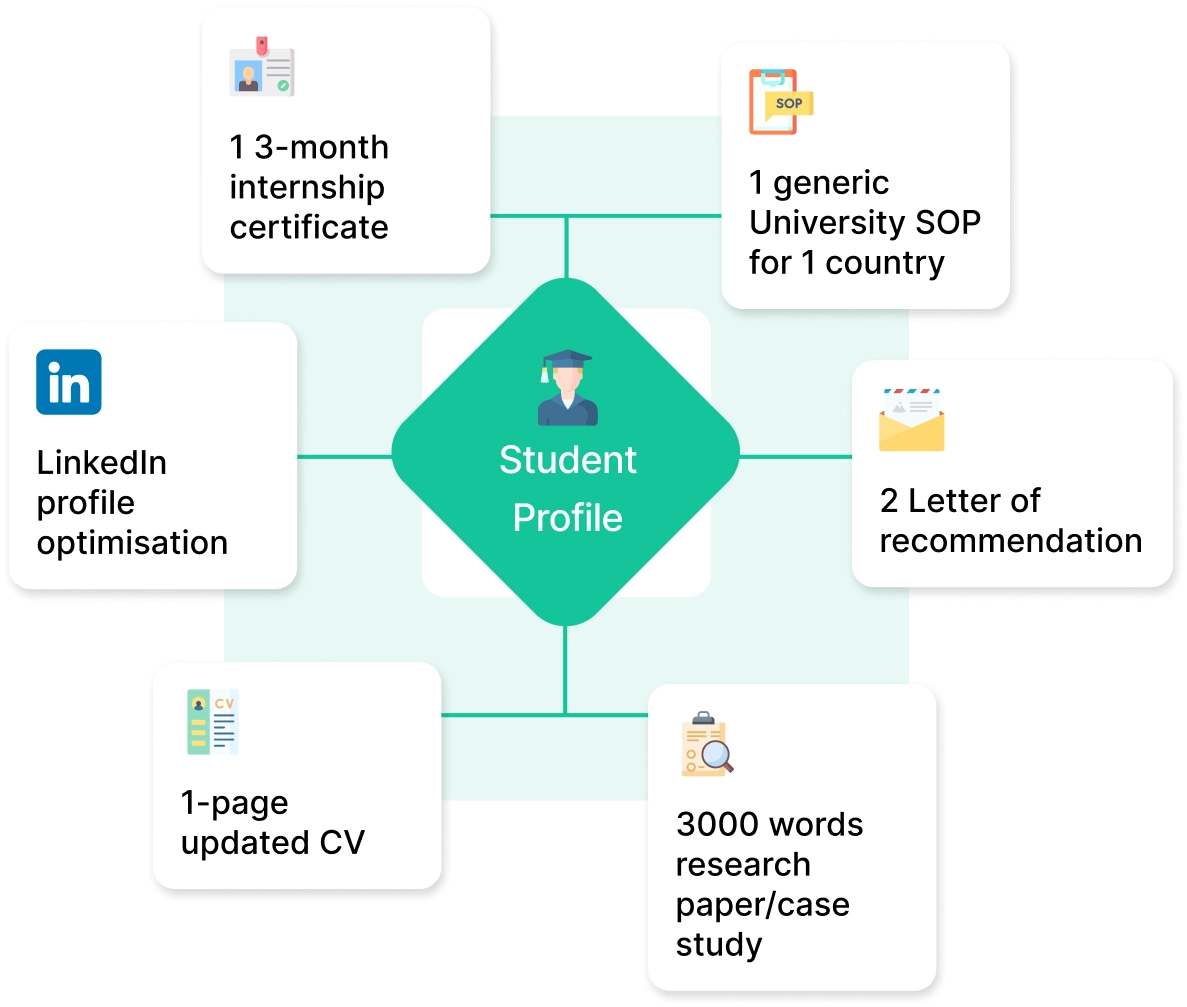Get Upto 1000 INR Off on your 1st order.
Contact Us NowLooking to land a spot at your dream university? Our expert SOP writers are here to write personalized, impactful Statements of Purpose that are never rejected.
Deadlines are critical in the application process. Our SOP services guarantee your document is ready well before submission time, so you can apply stress-free.
Our statement of purpose writers are highly skilled specialists who will showcase your unique story with perfect writing and attention to detail, providing the top SOP writing services in the business.
We offer a flexible revision policy that enables you to get the best version of your SOP.
Our 24/7 customer support team is always ready to assist, guiding you through every step of the SOP writing process.

When it comes to writing compelling SOPs, our statement of purpose writing services stands out. Trusted by thousands of students, our team has helped applicants secure admissions at top universities worldwide. Leave your SOP writing to us and focus on other important matters for your abroad journey.
Schedule a Consultation















Enjoy hassle-free, bespoke SOP writing services for students and professionals, with a guaranteed 2-day turnaround and no hidden fees! We create Statements of Purpose that are properly tailored to your profile, chosen universities, courses, and aspirations. Our skilled staff comprises education counsellors who do rigorous quality checks to assure excellence. Get features like one free revision at any time, quick delivery choices, and an exceptional acceptance rate of over 98%. With over 2,000 positive evaluations, we’re dedicated to making your university SOP writing experience pleasant and successful.

Studying computer science in USA offers tremendous opportunities to amplify your career growth in See more..
Read more
Do you know the most pivotal step in the process of applying for your PhD in Australia? See more..
Read more
A statement of purpose (SOP) is a written statement that describes your identity and your work. It is a reflection See more..
Read moreOur process begins with an understanding of your academic background, accomplishments, and objectives. We use this information to guarantee that your statement of purpose is both customized and successful.
Get personal guidance nowOur expert SOP writers write a bespoke SOP that aligns with your aspirations and showcases your strengths while meeting the university’s expectations.
Get personal guidance nowEach SOP undergoes meticulous proofreading and editing to guarantee clarity, coherence, and a professional finish.
Get personal guidance now


“The best thing about Write Right is they are very mindful towards perfection and customer feedbacks.Within affordable price they provide the content as per expectation.”
“I'm totally satisfied with the work that was done. The response from my POC and their clarifications on my concerns was crystal. Timely delivery as said.”
“They are always on time and open to discussions, which are really impressive characteristics."
"We were impressed by the quality of their work."
A Statement of Purpose (SOP) is a detailed essay where you showcase your academic background, goals, achievements, and reasons for applying to a particular university or program. It plays a vital role in your admission process.
An SOP is your chance to present yourself beyond academic scores. It highlights your personality, aspirations, and fit for the program. A strong SOP increases your chances of admission by making you stand out from other applicants.
We deliver your SOP within 2 days. For urgent requests, our express delivery service ensures your document is ready even sooner, without compromising on quality or content.
Yes, we offer one free revision anytime. This ensures your SOP is aligned with your expectations and meets the specific requirements of your chosen university or program.
We create personalized SOPs tailored to each individual’s profile, goals, and target universities. Our process guarantees originality, professional quality, and an above 98% acceptance rate. No hidden fees, and express options are also available.
Yes, we specialize in SOP writing for both Indian and international universities. Each SOP is customized to match the unique requirements of the university and program you are applying to.
Absolutely. All our SOPs are 100% original and written from scratch. We use advanced plagiarism-checking tools to ensure the content is unique and tailored to your profile.
Our writers are seasoned professionals with years of experience in crafting compelling SOPs. They understand what admission officers look for and ensure your SOP is impactful and professional.